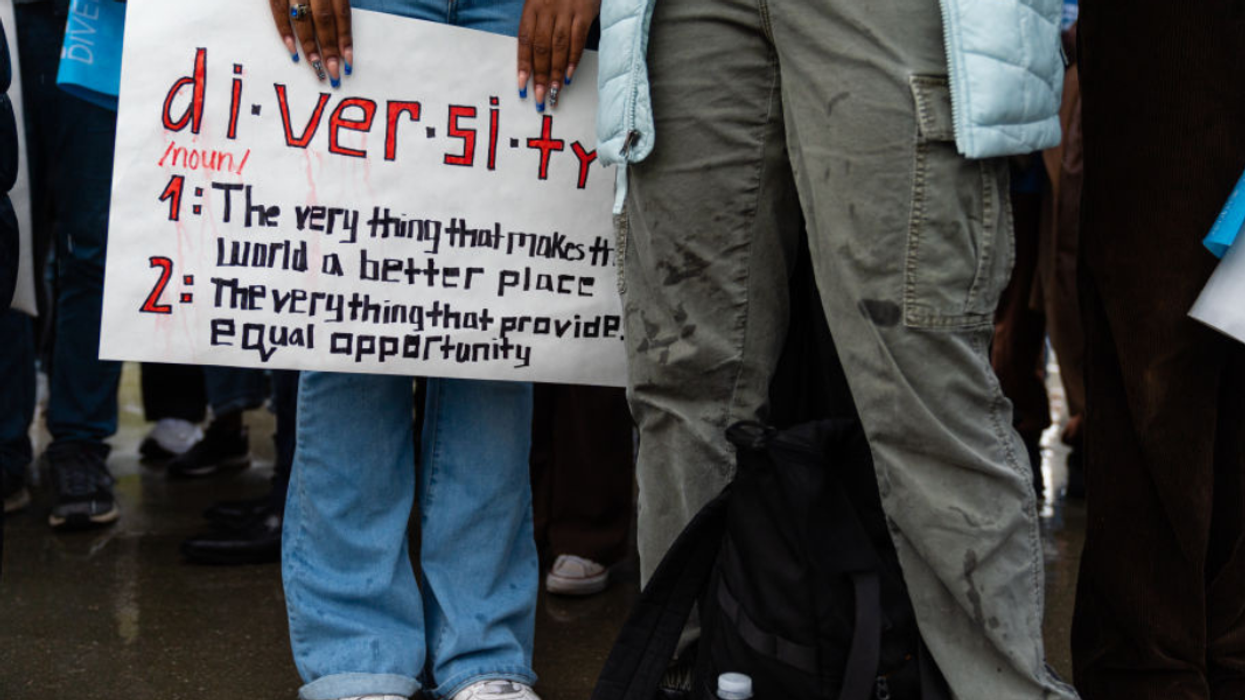Daniel O. Jamison is a retired attorney.
The Supreme Court’s recent decisions on affirmative action and permissible discrimination by a business harken back to a discredited era.
The Court majority wrote, “When a man has emerged from slavery, and by the aid of beneficent legislation has shaken off the inseparable concomitants of that state, there must be some stage in the progress of his elevation when he takes the rank of a mere citizen, and ceases to be the special favorite of the laws, ….”
No, this was not language in the Court’s recent decision banning affirmative action.
It was the language of the Supreme Court in the 1883 Civil Rights Cases that barred Congress from outlawing race discrimination in public accommodations. Along with its 1896 notorious cousin, Plessy v. Ferguson, these cases established the Jim Crow doctrine of “separate but equal” and entrenched America’s white majority as “the special favorite of the laws.”
How could this happen? Were not the immediate post-War Constitutional Amendments and civil rights laws designed to bring Blacks, who had been enslaved and grossly disadvantaged for hundreds of years, out of slavery and into the national mainstream?
The Civil Rights Cases ruled that the Civil Rights Act of 1875 was unconstitutional. That Act barred inns, public conveyances of all types, theaters, and public amusements from discriminating against “citizens of every race and color, regardless of any previous condition of servitude.” It imposed civil and criminal penalties for its violation. The Act was adopted near the end of the Grant administration by the lame duck “Radical” Republicans, who had lost their near 15-year control of the House. It was the capstone of what so many Americans had fought, died, and been maimed for in the Civil War.
But now a coalition of Northern and Southern Democrats would control the House, soon also the Senate. They were intent on rolling back the great post-Civil War progress in civil rights.
The 1883 Civil Rights Cases concerned race discrimination at hotels in Kansas and Missouri, a railroad in Tennessee, and theaters in New York and California. The Fourteenth Amendment states in part: “All persons born or naturalized in the United States…are citizens of the United States…No State shall make or enforce any law which shall abridge the privileges and immunities of citizens of the United States; nor shall any State…deny to any person within its jurisdiction the equal protection of the laws.” The Court majority ruled that the Amendment only allowed Congress to ban race discrimination resulting from “state action” and not from private discrimination.
The Thirteenth Amendment, which outlawed slavery and even private imposition of “badges of slavery,” was also held inapplicable here.
The lone dissenter, John Marshall Harlan, who would later also write a famous dissent in Plessy v. Ferguson, protested that race discrimination by these businesses open to the public would deny to a disfavored minority equal access to mainstream American public accommodations. Where would people stay, eat, and sleep, how would they travel, where would they enjoy common amusements? For Harlan, the 1875 Act was constitutional under the Fourteenth Amendment and under the Thirteenth Amendment to prevent “badges of slavery.” Congress’s power in the Constitution to regulate commerce between the states also justified the Act.
The 1883 Court ignored Congress’s power to regulate interstate commerce. It was another 80 years before Congress basically re-enacted the 1875 Act in the 1964 Civil Rights Act. This time, the Supreme Court promptly upheld the 1964 Act based on the Constitution’s Commerce Clause. In the meantime, white supremacy became evermore more deeply entrenched as red-lining and green-books proliferated.
Whether driven by fear of a renewed civil war or a race war, by rank racism, by poor lawyering, and/or by perceived Congressional intent, the Supreme Court in 1883 relegated Blacks to an often brutal and long-enduring subservient second-class citizenship.
The consequences still run deep. For example, even in the modern military, which has been integrated since the late 1940’s, former Army Captain and West Point graduate Zoe Kreitenberg has observed that, “Currently, Black service members face an up to 71% greater likelihood of punishment across the military, and nearly 53% of minority service members have personally witnessed white nationalism or racist ideologies in their units.”
Harlan pointed out that the 1875 Act protected any race from discrimination, so no one was made a “special favorite” of the law. He warned that at some future time another race may become dominant and allow like discrimination against a different minority race.
Affirmative action aims to right the injustice of long-standing race discrimination. It aligns with American ideals to promote equality and protect any race, now or in the future, from a majority’s imposition of gross injustice on the basis of race. In light of the nation’s racial history, doubts about how long to use this tool for disfavored minorities should be resolved against prematurely ending it.
The Civil Rights Cases allowed race discrimination to flourish. In ending affirmative action before its time, today’s Court perpetuates the consequences of that injustice.
But this is not all. Today’s Court also harkens to 1883 in allowing an alternative way for a business open to the public to refuse to serve an historically disfavored minority group: Show to the satisfaction of the court that the discrimination can be deemed First Amendment protected free speech.
Who has been “the special favorite of the laws?”




















